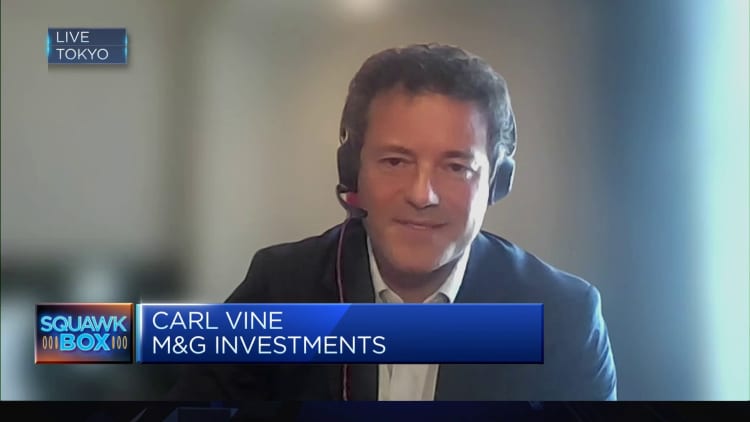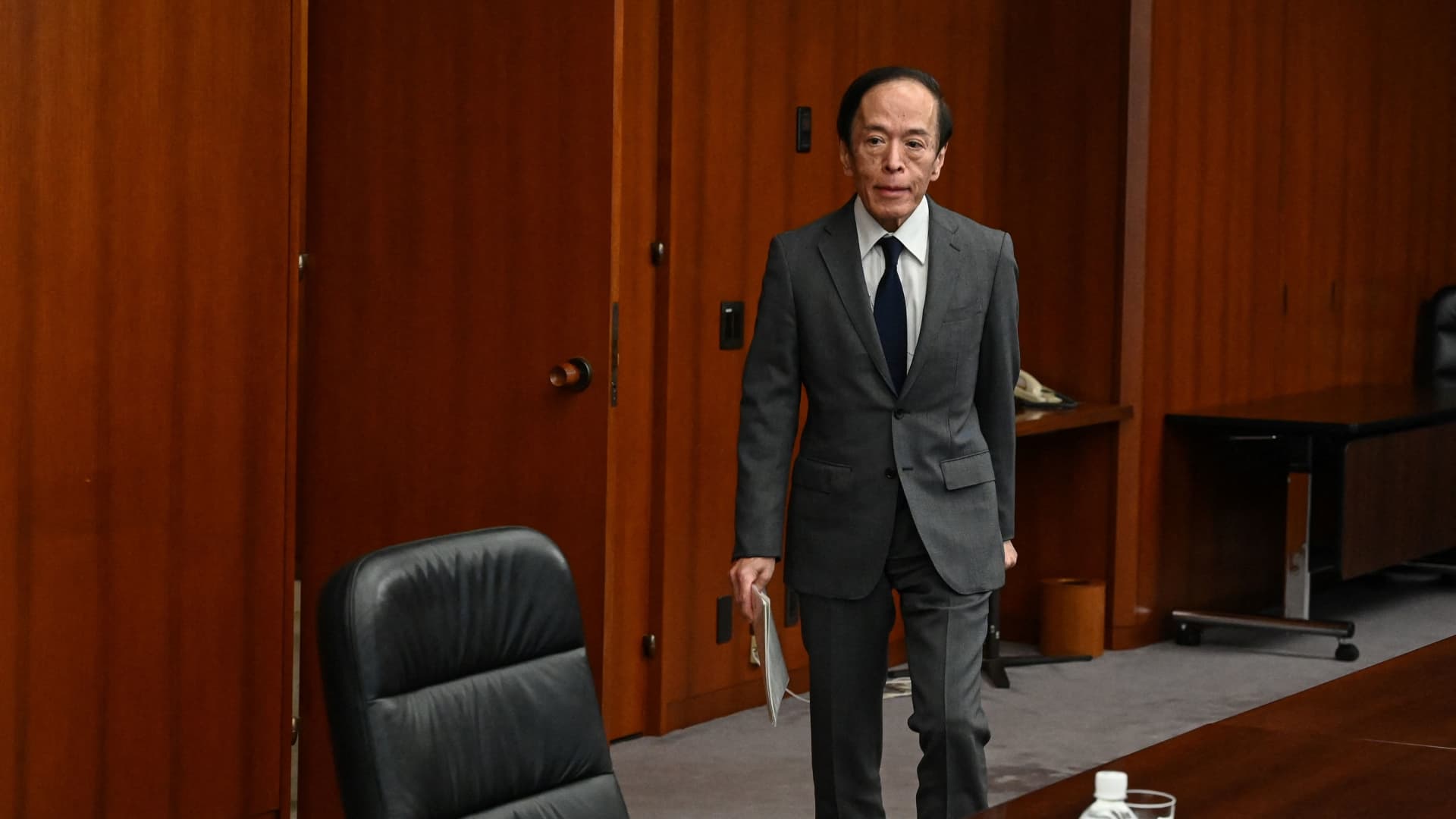Bank of Japan Governor Kazuo Ueda arrives to conduct an interview with a small group of journalists in Tokyo on May 25, 2023.
Richard A. Brooks | AFP | Getty Images
Japan’s central bank maintained its ultra-loose monetary policy on Friday, choosing to support delicate economic growth amidst global uncertainty.
The Bank of Japan kept its short-term interest rate target at -0.1%, consistent with economists’ predictions, and made no adjustments to its yield curve control policy after a two-day meeting.
The Japanese yen declined after the decision, falling by as much as 0.3% to around 140.70 per U.S. dollar before reducing losses. The Nikkei 225 likewise reversed earlier losses to edge higher, while 10-year Japanese government bond yields fell.
“With extremely high uncertainties surrounding economies and financial markets at home and abroad, the Bank will patiently continue with monetary easing while nimbly responding to developments in economic activity and prices as well as financial conditions,” stated the Bank of Japan in its policy statement.
Outlook for growth and inflation
The Bank of Japan anticipates the world’s third-largest economy to “recover moderately around the middle of fiscal 2023” due to pent-up demand. However, it cautioned that commodity prices and a slowdown in overseas growth will likely constrain expansion.
Earlier this month, first-quarter growth in Japan was significantly revised upward to 2.7%. Japan’s core inflation rate, which stood at 3.4% in April, has consistently exceeded the central bank’s 2% target for over a year.

“The pace of growth is highly likely to decelerate gradually,” stated the Bank of Japan. “The year-on-year rate of increase in the CPI (all items less fresh food) is likely to decelerate toward the middle of fiscal 2023, with a waning of the effects of the pass-through to consumer prices of cost increases led by the rise in import prices.”
Governor Kazuo Ueda is facing pressure with inflation well above the BOJ’s 2% target. Wage inflation is also expected to rise after workers received the largest pay raise in 25 years following negotiations with top Japanese companies in March.
“Despite positive surprises in terms of growth and inflation, we believe the BoJ will maintain the status quo for another year or so to assess whether the economy is on track to achieving 2% inflation within Governor Ueda’s five-year term,” wrote Shigeto Nagai, head of Japan economics at Oxford Economics, in a note.
“In his first speech as Governor, Ueda emphasized the risk management approach in policymaking and the high cost of premature tightening,” Nagai added.
The Bank of Japan has held its short-term interest rate target at -0.1% since adopting negative rates in 2016 to combat chronic deflation and stimulate economic growth. It continues to maintain its current policy due to the perceived fragility of growth.

Denial of responsibility! VigourTimes is an automatic aggregator of Global media. In each content, the hyperlink to the primary source is specified. All trademarks belong to their rightful owners, and all materials to their authors. For any complaint, please reach us at – [email protected]. We will take necessary action within 24 hours.


